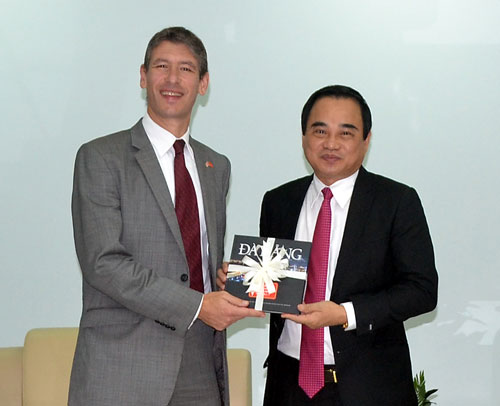UK assistance for Da Nang discussed
During his recent meeting with the Ambassador of the United Kingdom of Great Britain and Northern Ireland to Viet Nam, Mr Giles Lever, the Chairman of the Da Nang People’s Committee, Mr Van Huu Chien, briefed his guest on the city’s progress over recent years as well as its future development strategies.
Chairman Chien said he hoped that Mr Lever would do his utmost during his tenure to support the implementation of projects which are being jointly deployed by Da Nang and the UK. He added that he would like the diplomat to appeal for more British investors to put their money into the hi-tech, education and training, and tourism sectors. In particular, Chairman Chien noted that the city is in need of support from the UK to upgrade the newly-opened Viet Nam-UK Institute for Research and Executive Education into the Viet Nam-UK International University in the near future. He also took the opportunity to ask the UK to grant more scholarships to students from Da Nang’s universities to study at some of the UK’s major universities. He pledged that the city would promote bilaterial cooperation with the UK to accelerate the implementation of the city’s High-quality Human Resource Development Project. So far, 84 students from the city have studied at British tertiary institutions.
 |
| Ambassador Lever (left) and Chairman Chien |
In reply, Mr Lever spoke highly of the great efforts made by the city’s authorities in fulfilling their commitment to open the Viet Nam-UK Institute for Research and Executive Education. He also remarked that the British government is now implementing a project which aims to help British students do research in education, science and technology, and he hoped that this model would be expanded to include Da Nang in the near future. Furthermore, the guest affirmed that the British government is willing to assist Da Nang in conducting English training programmes as well as improving the quality of the local primary and secondary education systems.